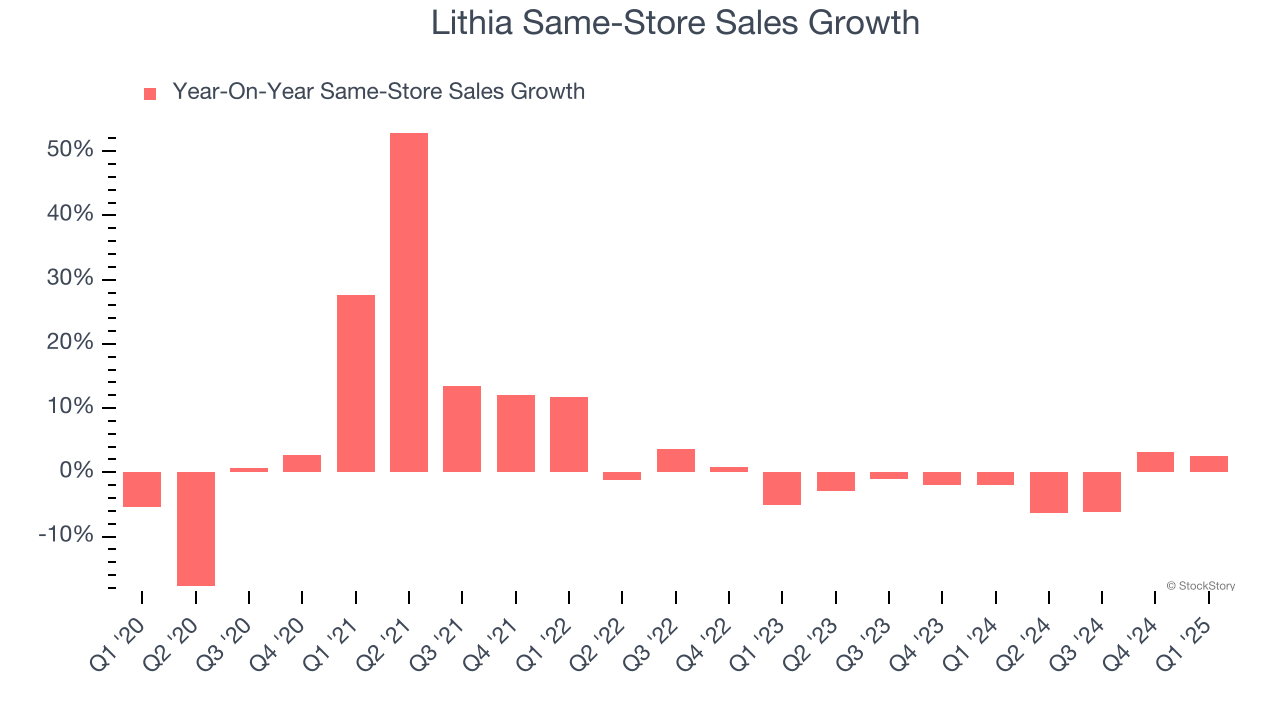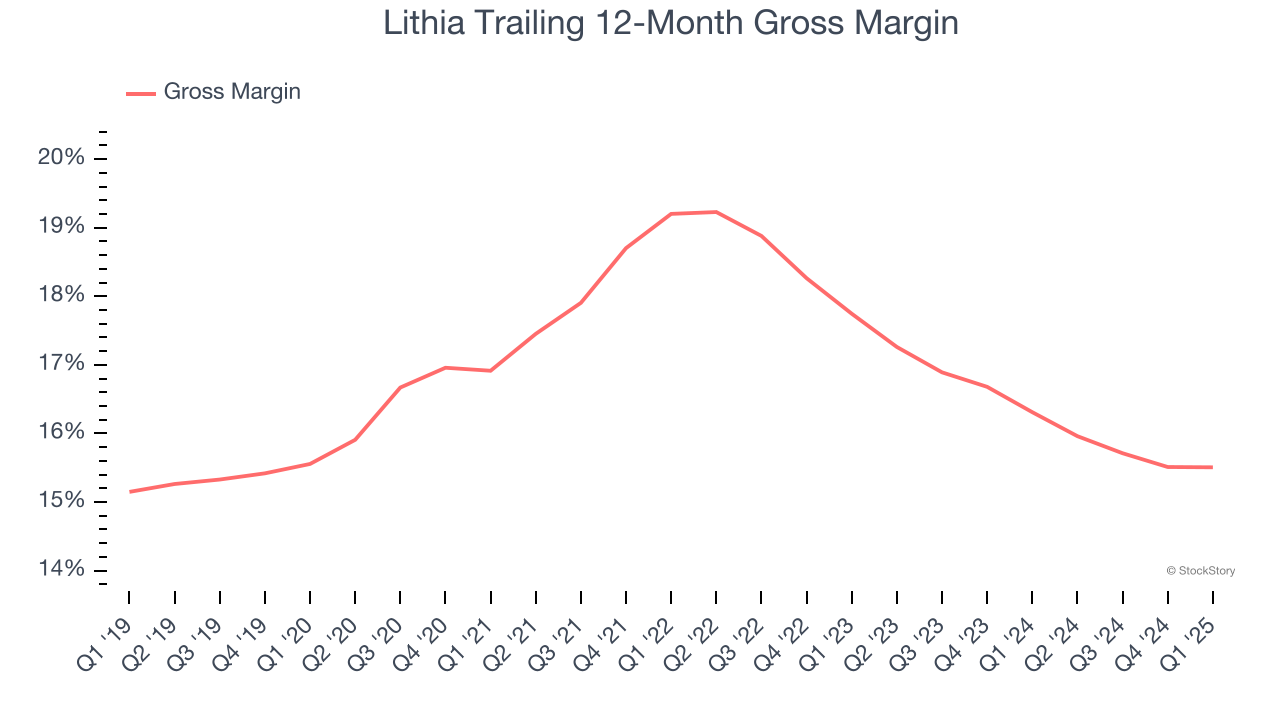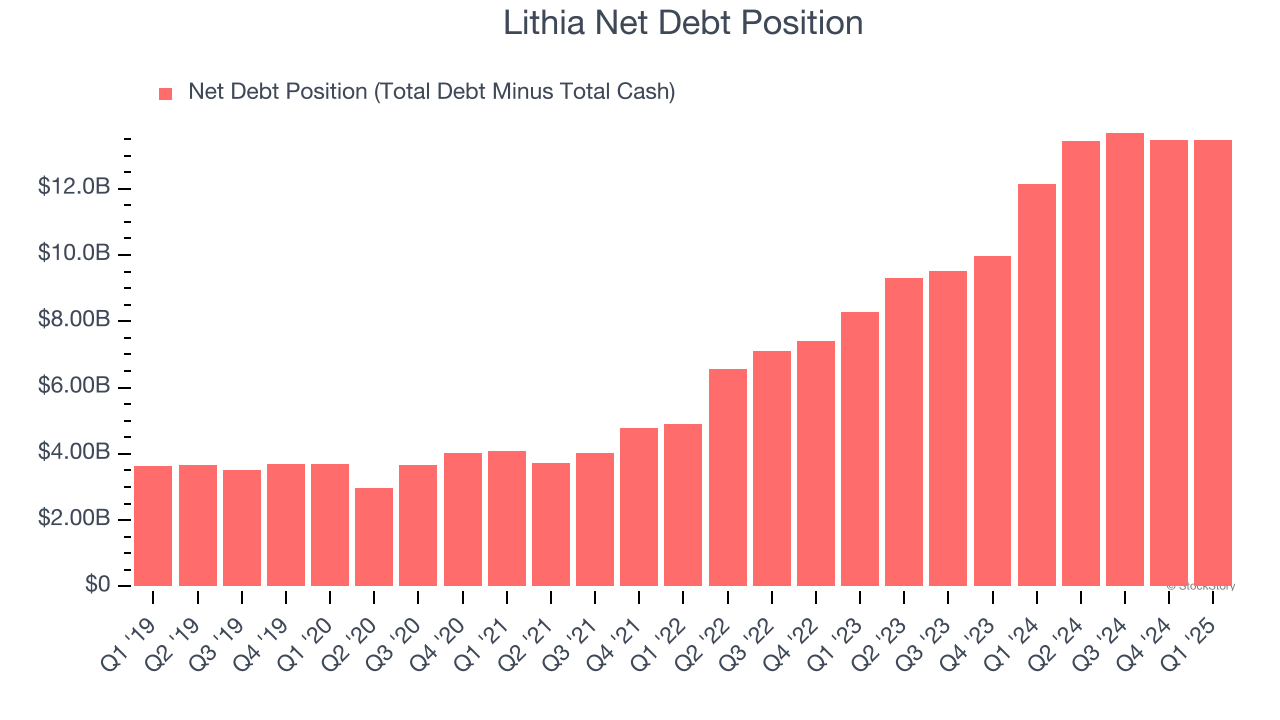
Over the past six months, Lithia’s shares (currently trading at $316.91) have posted a disappointing 18.2% loss while the S&P 500 was down 2.4%. This might have investors contemplating their next move.
Is there a buying opportunity in Lithia, or does it present a risk to your portfolio? Check out our in-depth research report to see what our analysts have to say, it’s free.
Why Is Lithia Not Exciting?
Even with the cheaper entry price, we're sitting this one out for now. Here are three reasons why LAD doesn't excite us and a stock we'd rather own.
1. Shrinking Same-Store Sales Indicate Waning Demand
Same-store sales show the change in sales for a retailer's e-commerce platform and brick-and-mortar shops that have existed for at least a year. This is a key performance indicator because it measures organic growth.
Lithia’s demand has been shrinking over the last two years as its same-store sales have averaged 1.9% annual declines.

2. Low Gross Margin Reveals Weak Structural Profitability
Gross profit margins are an important measure of a retailer’s pricing power, product differentiation, and negotiating leverage.
Lithia has bad unit economics for a retailer, signaling it operates in a competitive market and lacks pricing power because its inventory is sold in many places. As you can see below, it averaged a 15.9% gross margin over the last two years. That means Lithia paid its suppliers a lot of money ($84.12 for every $100 in revenue) to run its business. 
3. High Debt Levels Increase Risk
Debt is a tool that can boost company returns but presents risks if used irresponsibly. As long-term investors, we aim to avoid companies taking excessive advantage of this instrument because it could lead to insolvency.
Lithia’s $13.9 billion of debt exceeds the $430.3 million of cash on its balance sheet. Furthermore, its 7× net-debt-to-EBITDA ratio (based on its EBITDA of $1.88 billion over the last 12 months) shows the company is overleveraged.

At this level of debt, incremental borrowing becomes increasingly expensive and credit agencies could downgrade the company’s rating if profitability falls. Lithia could also be backed into a corner if the market turns unexpectedly – a situation we seek to avoid as investors in high-quality companies.
We hope Lithia can improve its balance sheet and remain cautious until it increases its profitability or pays down its debt.
Final Judgment
Lithia isn’t a terrible business, but it doesn’t pass our quality test. After the recent drawdown, the stock trades at 8.9× forward P/E (or $316.91 per share). This valuation is reasonable, but the company’s shakier fundamentals present too much downside risk. We're pretty confident there are superior stocks to buy right now. We’d recommend looking at one of Charlie Munger’s all-time favorite businesses.
Stocks We Like More Than Lithia
Donald Trump’s victory in the 2024 U.S. Presidential Election sent major indices to all-time highs, but stocks have retraced as investors debate the health of the economy and the potential impact of tariffs.
While this leaves much uncertainty around 2025, a few companies are poised for long-term gains regardless of the political or macroeconomic climate, like our Top 5 Growth Stocks for this month. This is a curated list of our High Quality stocks that have generated a market-beating return of 183% over the last five years (as of March 31st 2025).
Stocks that made our list in 2020 include now familiar names such as Nvidia (+1,545% between March 2020 and March 2025) as well as under-the-radar businesses like the once-micro-cap company Kadant (+351% five-year return). Find your next big winner with StockStory today.




